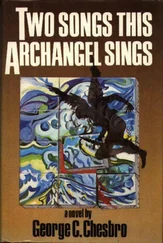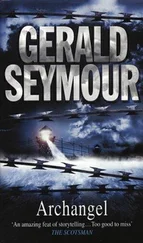“That,” Taggart said, taking in the freshly washed pails and completed charts, “was very thoughtful.” He swung his goggles from his thumb, white-rimmed eyes shining in a face caked everywhere else with dirt.
Two days later, Ed rode a used bicycle up the hill and offered it to Constantine for the rest of the summer. He learned how to ride it in an hour, and then — suddenly he could reach so many places! He pedaled for several miles along the same shore road Taggart and Ed had taken. He rode up and down the hills along the road toward Bath. He explored the Pleasant Valley, a stretch of bottom land extending back from the lake, and he found the farm owned by one of his uncle’s friends, who bred and raced trotting horses. The oval track was sometimes loaned out for bicycle races, and he dreamed of being old enough to enter one.
He was sharpening a knife on the porch, a few days later, when he looked up to see a giant dragonfly rising from that same valley. Or not a dragonfly, but a mechanical version of one, guided by a man seated between its golden double wings. He dropped the knife, leapt the rail, and ran toward it across the field. The sound attached to the sight— tik-a, tik-a, tik-a, tik-a. Tika tika tika —brought his uncle to the door of one of the sheds.
“Do you see?” Taggart called.
The thing moved steadily, casting a slim shadow. As it sank, Constantine saw another figure watching from halfway down the hill, a girl with curly dark hair resting her hand on a wooden stake in the vines.
“That’s one of G.H.’s aeroplanes,” Taggart said. Tik … a , and it touched unsteadily down. “He and some friends have been experimenting with a double-wing design, using his lightest motorcycle engine.”
“I, I, I,” Constantine stuttered. “I want — can we go see?”
“Of course,” Taggart said easily, and the next day brought him right inside the little factory he’d only walked past before. Bicycles and motorcycles, motors and frames, shelves and benches and then, in a separate shed, parts of a flying machine. The man who’d nearly run him down in the village — this was G.H. — showed him bamboo struts guyed with piano wire, a three-wheeled landing gear, hinged tips at the end of wings and the shoulder yoke that controlled them. An elderly man wearing a fez walked in holding a model helicopter, which was powered by rubber bands; over the winter he’d gotten a full-sized version three feet off the ground. A young mechanic suspended a model wing inside a long box with a fan at one end and then invited them to view the swirling threads of red silk. Everywhere Constantine saw another marvel. He had no desire to emulate his father, who worked, when he worked at all, at a tool-and-die shop, but he loved the machines. The biplane he’d glimpsed was called the June Bug ; it was kept in a tent near the racetrack he’d seen, and had already flown several times. Two other models had been tested earlier in the year and the light, powerful engines G.H. built, which had first powered motorcycles and then dirigibles, had meanwhile lured to the area other men interested in building flying machines.
As Constantine listened to the men talk, he understood for the first time that his uncle wasn’t just a tinkerer or an amateur animal breeder: he made things. Something that helped bind the bamboo into a sturdy frame; a refinement of the varnish spread on the wings to seal the cloth. The little crook in the tubing controlling the rudder was his design as well. In the same way that Taggart tinkered with cows and fowl, cross-breeding and selecting until he’d improved some aspect, he joined inanimate objects — screws, oil, guncotton, rubber, parts from those tubs and bins at home — until something new emerged.

SO THE VILLAGE, which had looked so quiet, turned out to be just as mysterious as the farm. Now that Constantine knew to look, he found dirigibles parked in a hangar on the flats and others corralled, like whales in a narrow bay, in the same glen where Miss Atkins found her fossils. Beryl revealed, while serving dinner, that last summer she’d seen several of the strange, lumpy shapes moving slowly between the hills. And in the spring, she said, a few months before Constantine had joined them, she’d stood on the swimming dock as a dirigible bumbled past like a gigantic fat bee, the pilot pointing the nose up or down by scuttling across the matchstick frame of the gondola suspended below. If she’d had a ladder, she said, she could have grabbed the pilot’s foot. Constantine gaped, he envied her furiously; why had she kept this secret?
The nights were short now, as they neared the end of June; they milked a bit later but still it was light when they ate, light when they cleared their plates, light enough for a bicycle ride after supper, when the air finally began to cool. Unremarkable-looking strangers he’d earlier ignored were now revealed to be aerialists, drawn here by G.H.’s presence, many acquainted with his uncle. One experimented with a full-sized version of a helicopter, one had built a flapping-winged thing called an ornithopter, another worked on an experimental monoplane. He met stuntmen, engineers, an Army officer interested in dropping bombs from the air. Each gave him a different sense of Taggart but didn’t help him understand more about Ed.
One night he rode down to the beach and stayed longer than usual with the splashing boys, looking up for a shape in the air each time his head broke the surface. By the time he dressed the sun was nearly gone, and the last part of his ride home was dark enough to be difficult. He steered by the light from the kitchen window, found the house empty when he entered, and padded barefoot across the floor, imagining Taggart and Ed working in one of the sheds and Beryl long since headed for home. A noise from the porch drew him across the parlor toward the open door. In the dim light he saw someone — Ed, he realized, when his eyes adjusted more fully — standing very close to Beryl.
Both seemed to be looking at the sky above the lake. He backed up a few steps and then moved forward again, this time purposefully banging the doorframe as he passed. Smoothly the pair slid apart, greeting him with neither embarrassment nor explanation.
“Did you have a good swim?” Beryl asked.
“Excellent,” Constantine replied. Were they … courting, then? That was the word his mother would have used. But if they were, where did this leave Taggart?
Ed began to fan her with a magazine he picked up from one of the chairs. Beryl lived with her father, Constantine knew by then, along with her brothers and sisters and a maiden aunt in a house not half a mile away. Her father worked with G.H. as a mechanic at the little factory but spent much of his pay packet on new gadgets; her wages supported the household. He’d begun to feel guilty for the extra work he caused her.
“Tomorrow,” Ed said, swirling the pages enthusiastically, “we’ll have a chance to see an eclipse, if it doesn’t cloud up. Look.” He held the magazine out to Constantine.
Popular Astronomy : what was he supposed to do with this? An eclipse was … he thought he remembered from school that it had something to do with the moon, but the article marked by a long piece of grass was no use at all, dense text framing an array of maps covered with curved lines and numbers. As he let the magazine fall to the chair, Taggart stepped onto the porch. Beryl seemed perfectly glad to see him.
“I was showing him Phoebe’s calculations for the eclipse,” Ed said, adding to Constantine, “We knew the person who made those tables when we were all at Cornell. Phoebe Wells, she was then.”
Читать дальше













